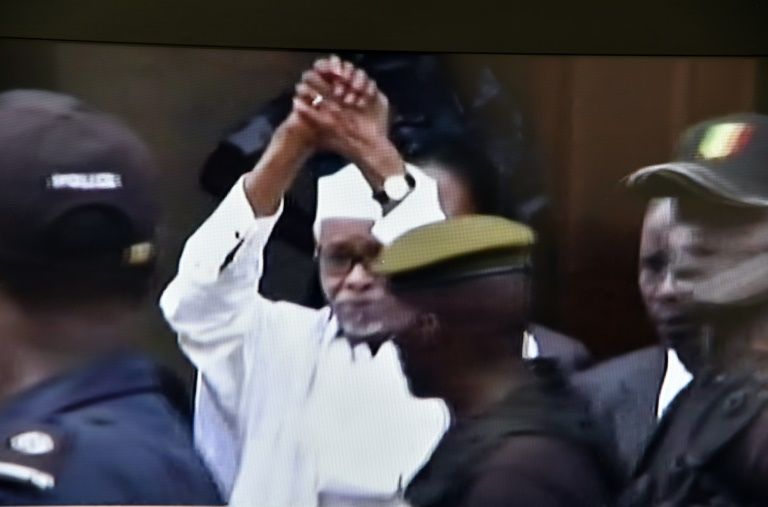-
Tips for becoming a good boxer - November 6, 2020
-
7 expert tips for making your hens night a memorable one - November 6, 2020
-
5 reasons to host your Christmas party on a cruise boat - November 6, 2020
-
What to do when you’re charged with a crime - November 6, 2020
-
Should you get one or multiple dogs? Here’s all you need to know - November 3, 2020
-
A Guide: How to Build Your Very Own Magic Mirror - February 14, 2019
-
Our Top Inspirational Baseball Stars - November 24, 2018
-
Five Tech Tools That Will Help You Turn Your Blog into a Business - November 24, 2018
-
How to Indulge on Vacation without Expanding Your Waist - November 9, 2018
-
5 Strategies for Businesses to Appeal to Today’s Increasingly Mobile-Crazed Customers - November 9, 2018
Trial of Chad dictator Habre adjourned to Sept 7
The trial marks the first time an African ex-president faces justice in sub-Sahara Africa, with about 2,500 of the dictator’s victims submitting their testimonies.
Advertisement
The proceedings cap a 15-year battle by victims and rights campaigners to bring the former strongman to justice in Senegal, where he fled after being toppled in a coup in his central African nation.
Habre had said he did not recognise the court’s jurisdiction and vowed he and his lawyers would play no part in the trial. The new lawyers were given 45 days to prepare and the trial is due to resume on September 7.
“This is a big sigh of relief for the victims, who have waited for 25 years for justice”, said civil servant Roger Leotard.
“It shows that you can actually achieve justice here in Africa”, said Human Rights Watch counsel Reed Brody who has been working on the case against Habre since 1999.
The AU had mandated Senegal to try Mr Habre in July 2006, but the country stalled the process for years under former president Abdoulaye Wade, who was defeated in 2012 elections.
This is the first time that the courts of one country, Senegal, are going to be trying the former leader of another country, Chad, for alleged human rights crimes. The ICC itself can only try crimes committed after it was established.
The first day of the trial had been suspended after Habre, 72, started shouting slogans against the court and had to be forcibly removed.
Rights groups say the United States, too, provided a variety of support to Habre – including training, intelligence and arms for his feared secret police – despite being aware of the regime’s atrocities.
People stand in line before entering the court building, rear, where the trial of former Chadian dictator Hissene Habre is taking place in Dakar, Senegal, Monday, July 20, 2015, The trial of former Chadian dictator Hissene H… His supporters shouted “courage” and “Mandela”, in reference to the hero of apartheid-era South Africa.
Most of the evidence for the trial comes from the efforts of previous victims of Habre who were so traumatized by their experiences inside his jails that they dedicated their life to bringing him to justice.
“Police are mobilized to ensure security inside the courtroom while security forces are deployed outside”, Marcel Mendy, communications director for the Extraordinary African Chambers, said.
The case against Habre turns on whether he personally ordered the killing and torture of political opponents and ethnic rivals. An official truth commission report in 1992 accused his regime of committing some 40,000 political murders ̶ although only 4,000 victims were officially named. A court handwriting expert concluded that margin notes on one document were Habre’s. It is “fundamentally important to establish a clear two-way communication between the special court in Senegal and the Chadian population, in order to ensure that the conduct of the trial breeds a real sense of ownership and justice within Chad itself”, he said.
Advertisement
Human Rights Watch says its investigation in 2001 unearthed thousands of documents in the abandoned DDS headquarters updating Habre on the status of detainees.





























